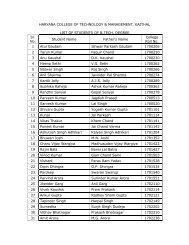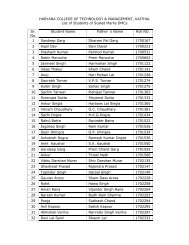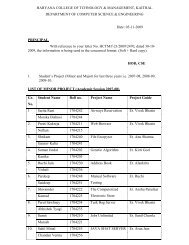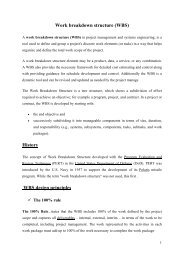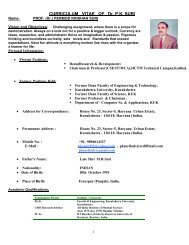You also want an ePaper? Increase the reach of your titles
YUMPU automatically turns print PDFs into web optimized ePapers that Google loves.
LECTURE NOTES OF ADVANCED DATA STRUCTURE (MT-CSE 110)<br />
LINKED LIST BASED QUEUE IMPLEMENTATION<br />
A queue represented <strong>using</strong> a linked list is also known as a linked queue. The array<br />
based representation of queue suffer from following limitations.<br />
• Size of the queue must be known in advance<br />
• We may come across situation when an attempt to enqueue an element<br />
causes over flow. However, queue as an abstract data structure cannot be<br />
full. Hence , abstractly it is always possible to enqueue an element in queue.<br />
Therefore, implementing queue as an array prohibits the growth of queue<br />
beyond finite number of elements.<br />
The link list representation allows a queue to grow to a limit of the<br />
computers memory .<br />
The following are the necessary declarations<br />
Typedef struct nodetype<br />
{<br />
Int info ;<br />
Struct node type *next;<br />
}<br />
Node;<br />
Typedef struct {<br />
Node * front ;<br />
Node * rear;<br />
}<br />
Queue;<br />
Queue q;<br />
Here we have defined two data type name node and queue. The node type ,<br />
a self referential structure , whose first element info hold the element of the<br />
queue and the second element next holds the address of the element after it<br />
in the queue .the second type in queue, a structure , whose first element<br />
front holds the address of the first element of the queue, and the second<br />
element rear holds the address of the last element of the queue. The last<br />
line declares a variable q of type queue.<br />
Prepared By :<br />
Er. Harvinder Singh<br />
Assist Prof., CSE, H.C.T.M (Kaithal) Page ‐ 147 ‐



